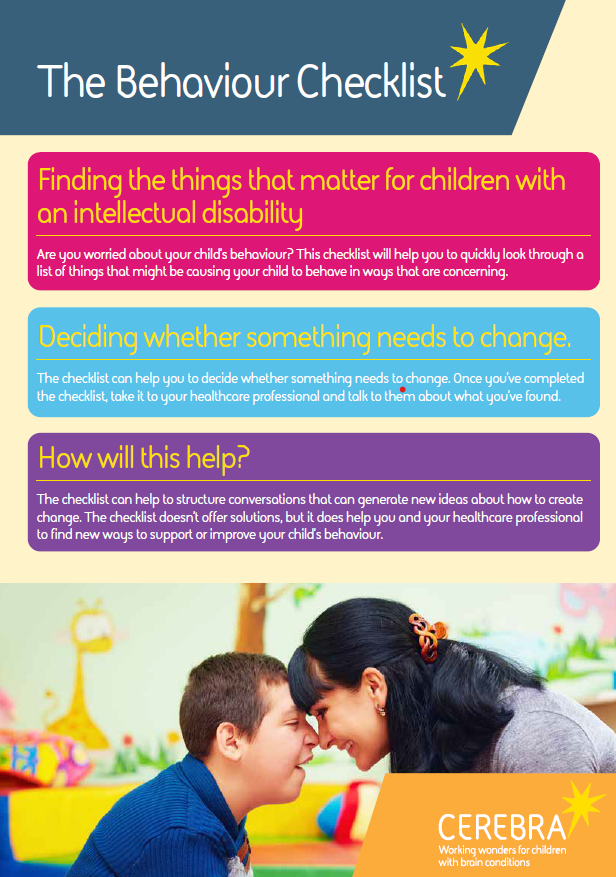Our Behaviour Checklist is the newest resource to come out of our work at the Cerebra Network for Neurodevelopmental Disorders (CNND). It links together many of our existing resources to help parents of children with complex needs.
What is the Behaviour Checklist?
The Behaviour Checklist is a list of the things that are important to assess when thinking about the behaviour and wellbeing of children and adults with severe learning disability and complex needs. Using the list ensures that these things are not missed or forgotten.
When is the Behaviour Checklist useful?
The Behaviour Checklist can be used by parents, carers and professionals when they are trying to work out why someone is showing a behaviour or might be distressed, angry, upset or appear to have very low mood. It can also be used at regular review meetings or any other time to make sure someone’s quality of life is as good as it can be. It can help make sure the right things are all discussed and thought about and help everyone to agree on the most important things to do next. Carers, parents and professionals can then decide together which assessments and treatments might be helpful.
Important Factors to Consider
We explain more about some of the most important things to look at when thinking about your child's behaviour and well-being.














